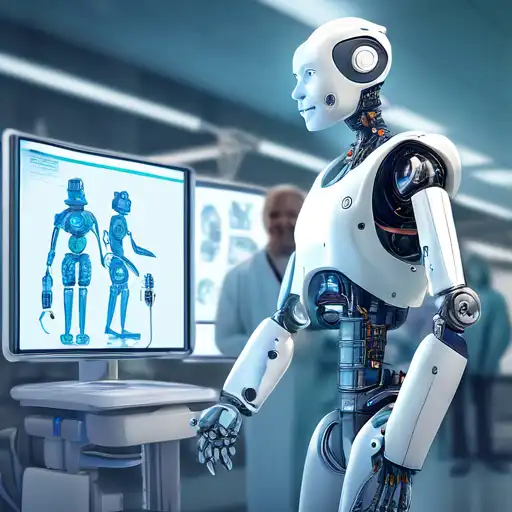The Dawn of Robotics in Healthcare
The integration of robotics into healthcare is revolutionizing the way medical services are delivered. From surgical procedures to patient care, robotics technology is setting new standards for precision, efficiency, and outcomes. This transformative approach is not just enhancing existing procedures but also enabling new possibilities in treatment and care.
Revolutionizing Surgical Procedures
One of the most significant impacts of robotics in healthcare is in the field of surgery. Robotic-assisted surgery allows for unparalleled precision, reducing the risk of complications and improving recovery times. Surgeons can perform complex procedures with more control and flexibility than ever before, thanks to advanced robotic systems.
Enhancing Patient Care and Rehabilitation
Beyond the operating room, robotics is playing a crucial role in patient care and rehabilitation. Robotic exoskeletons, for example, are helping patients regain mobility after strokes or spinal cord injuries. Similarly, robotic prosthetics are offering amputees a new lease on life, with devices that closely mimic natural movement.
Streamlining Hospital Operations
Robotics is also transforming hospital operations, from logistics to pharmacy management. Automated guided vehicles (AGVs) are being used to transport supplies and medications, reducing the burden on staff and minimizing errors. Meanwhile, robotic pharmacy systems are ensuring accurate medication dispensing, enhancing patient safety.
The Future of Robotics in Healthcare
As technology advances, the potential applications of robotics in healthcare continue to expand. From telepresence robots enabling remote consultations to AI-driven diagnostic tools, the future of healthcare is increasingly robotic. This evolution promises not only to improve patient outcomes but also to make healthcare more accessible and affordable.
Challenges and Considerations
Despite its many benefits, the integration of robotics into healthcare is not without challenges. Issues such as high costs, the need for specialized training, and ethical considerations must be addressed. However, with ongoing research and development, these hurdles are gradually being overcome.
In conclusion, robotics in healthcare is a game changer, offering innovative solutions to age-old problems. As we continue to explore and embrace these technologies, the possibilities for improving patient care and outcomes are limitless. The future of healthcare is here, and it is robotic.
